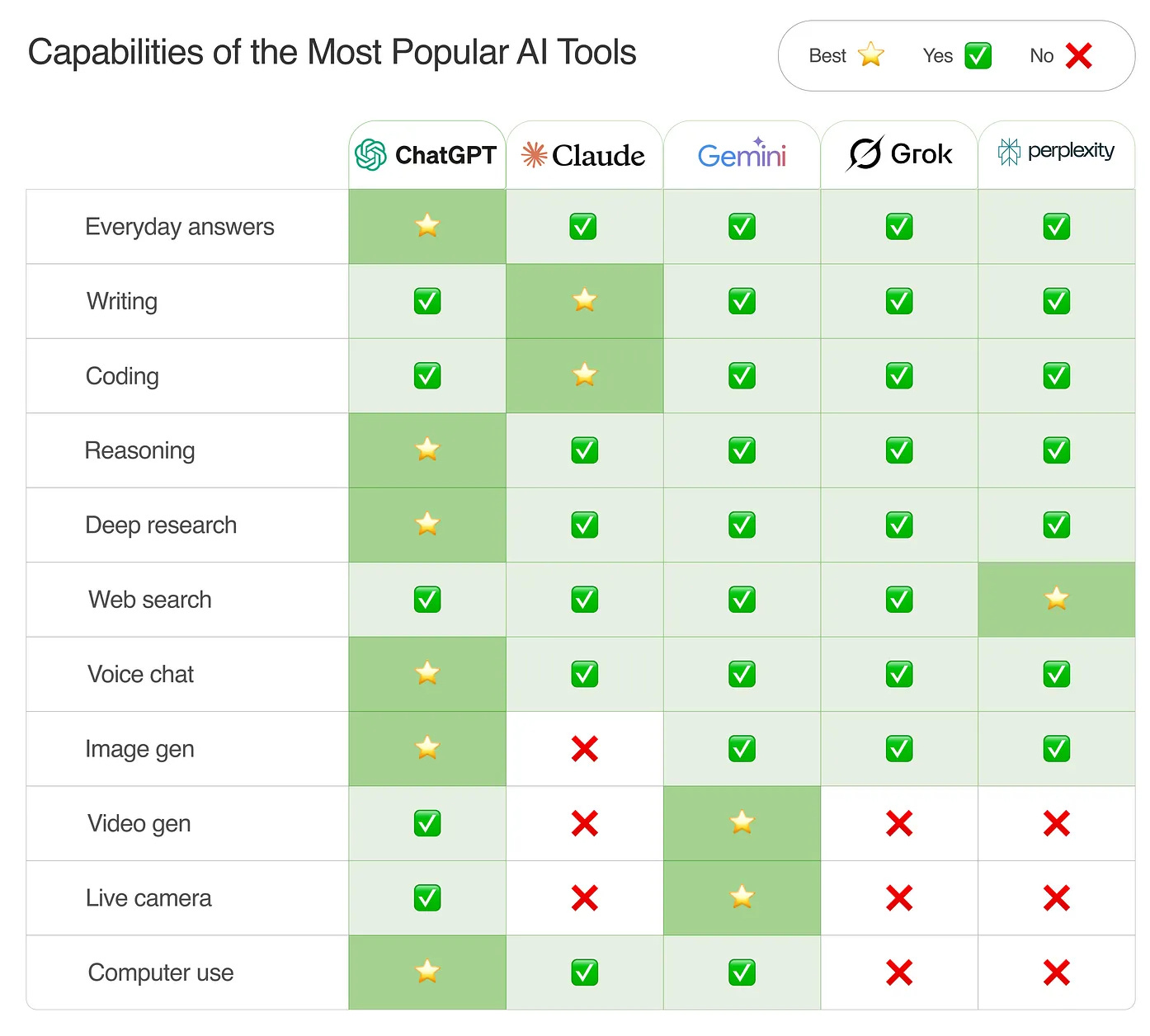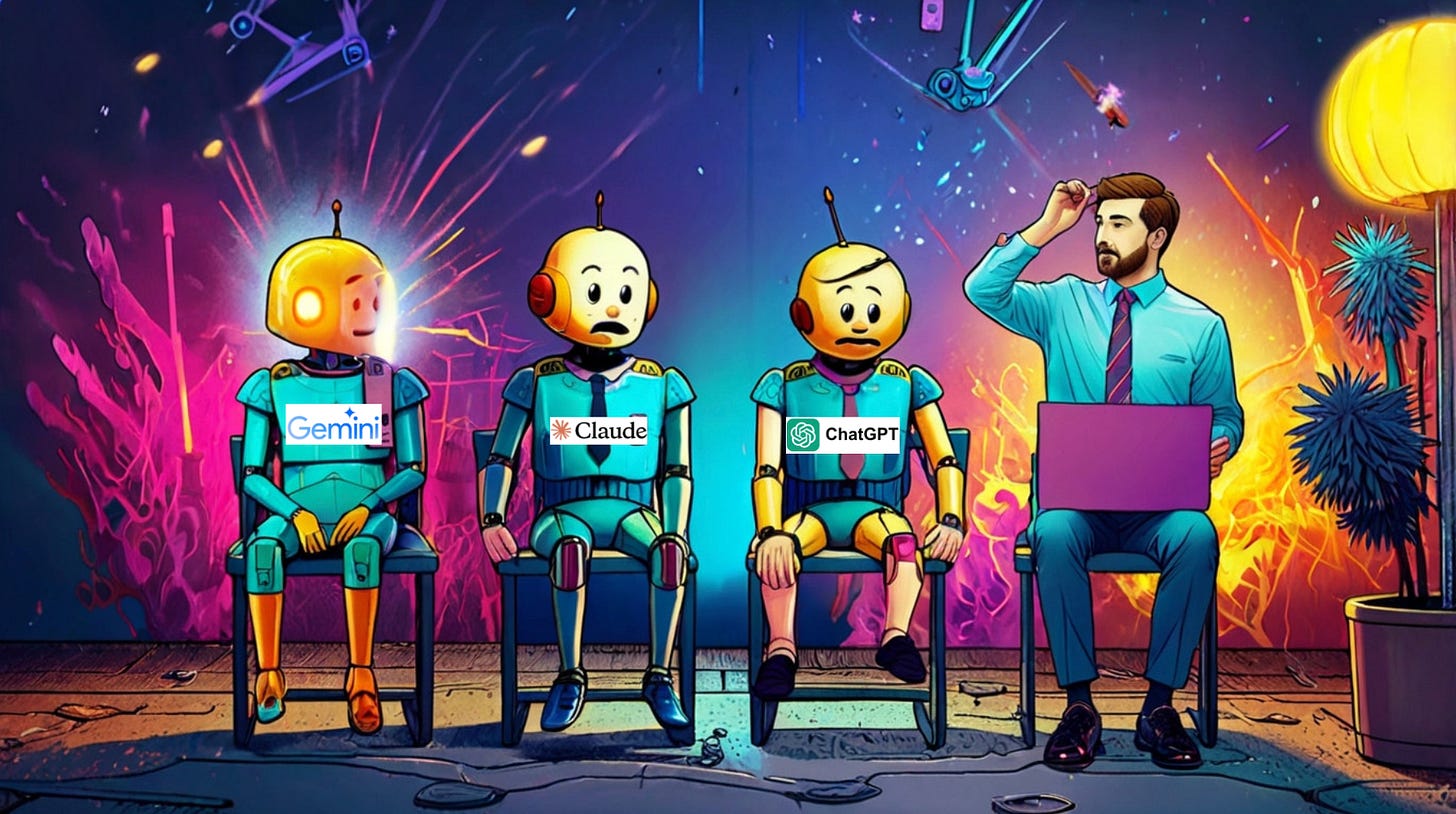How I'm stopping my PM skills from becoming worthless by AI Agents
What I'm learning for career insurance, and why every Product Manager will need this.
I recently launched "There Is No Spoon", my survival guide for PMs navigating the AI revolution.
The feedback?
Thoughtful, global, and grateful.
Messages from people stating why they have purchased it, and PMs thanking me for finally bringing some sense of order to the GenAI productivity chaos.
But beneath the praise, something else came through.
Not confidence.
Not clarity.
Quiet panic.
Get the ‘No Spoon Guide’ - NOW
The systematic 48-hour framework that transforms Product Managers and Digital Transformation Consultants from AI feature builders into autonomous, Agentic AI product strategists, before someone else builds the AI Agent to do your job.
One-time discount to complete the guide.
⏰ Limited Time: Price doubles when this reaches 1,000 subscribers.
⏰ Current count since launch: 112 subscribers.
The Quiet Panic behind the Praise
While readers appreciated the framework I’ve written, the discussions in person with PMs and the comments provided weren’t strategic; they were survivalist:
“Can Claude automate discovery notes?”
“Should I wire n8n into Notion?”
“Do I need to build an agent to stay relevant?”
This was’nt strategic thinking.
They were simply reacting to using tools and cobbling them together, influenced by the hype of low-code / no-code.
They were looking for an answer to duct-tape their way out of irrelevance.
What I saw was distress signals.
“They’re not building AI agents. They’re building their own career collapse.”
I spoke at length with my Templonix Founder,
, about the feedback.In his recent learnings around customer behaviour relating to AI Agents, Chris articulated that there is a communication problem in all the hype of agents:
“Customers have no idea what they are buying”
Everyone's obsessed with building AI agents (through their actions). These dreamy, autonomous systems promise to "do your job" while you watch, and appear brighter.
But here's what Chris discovered (and what my analysis confirms). Business process problems don’t need autonomy. They need to augment how their people develop capabilities in creating ‘professional intelligence’.
“Building AI agents without an intelligence system is like buying a Formula 1 car with no track. You’ll go nowhere, fast!”
Yet the data told a story. Everywhere, it indicated that PMs are:
Cobbling together Gemini, Claude, ChatGPT, and Perplexity without identifying best practice capabilities.
Building six-month agent prototypes that never scale across product operations.
Treating GenAI like Google instead of programmable infrastructure.

The common theme?
Obsessing and building AI Agents, while not focusing on the real problem that needs to be solved.
This resulted in technical debt. sustainability out of control, confusion, lost time.
The AI Agent Trap that's Killing PM Careers
After I reviewed this data, I saw a clear problem that needs to be solved:
“How Might We help product managers evolve with GenAI tooling to mitigate improvising with the latest hype toys?
The signals were everywhere:
Building in low-code tools with no structured architecture.
Glueing together agents with Gemini, Claude, n8n, and Notion, hoping something sticks.
Treating AI as a feature, not a foundational layer.
Not knowing the difference between an AI Agent and an intelligence-based system.
The most gut-wrenching quote I heard:
“I feel like GenAI is a train I missed six months ago, and every day the platform feels further away.”
The same fear resonated through the analysis.
PMs weren’t worried about being replaced by an AI Agent; they were concerned about being replaced by someone who knows how to implement it across product operations and see a measurable impact in productivity.
What PMs Want (But Won't Admit)
They weren’t lazy. They weren’t unskilled. They were drowning.
In just one week, three separate product managers opened up to me, not about roadmap priorities or tooling questions, but about something far more personal.
“Each of them was fighting to stay relevant in a world that had already undergone significant change.”
They weren’t asking for another AI use case. They were asking how to stay in the room. How to reclaim influence. How to do the job they used to be great at, only now, under the pressure of AI agents, LLMs, and shadow hierarchies built around people who “speak AI.”
What surfaced wasn’t a tooling gap. It was something more profound.
Three confessions. Three signals. One pattern I couldn’t ignore.
Confession 1:
"Tim, I need to move faster. My junior PM shipped three features while I was still writing requirements. She's using something called Claude Projects, I don't even know what that is."
The need here is the ability to move 10x faster and operate at the same speed of AI-enabled PMs. Instead, they had purchased another subscription tool that created more complex fragmentation and resulted in deceleration across the product lifecycle.
Confession 2:
"I'm reporting to someone five years younger than me. He speaks 'AI fluently', whatever that means. I've been a PM for twelve years. How did this happen?"
The fear here, even though we live in a diverse world, is that someone younger is replacing them, and they are watching it happen. They thought a LinkedIn Learning Certificate and another Coursera badge would address this issue, but it had no impact on improving their practical skills.
Confession 3:
"My boss keeps asking about AI ROI. I've spent $15,000 on LLM tools. I have team logins everywhere. But when she asks 'What's the impact?' I have nothing. I'm running out of time."
In this particular feedback, this person’s job is literally on the line. They had been sucked into a world of ChatGPT teams licensing that presented more promises, with more pilots, but delivered no measurable impact.
The pattern was devastating.
“PMs need a solution to create an AI moat that would enable them to remain relevant.”
These were talented professionals watching their careers evaporate in real-time, who needed to reposition themselves in an intelligent way, where they could utilise their strategy, creativity, and productivity skills. What was the solution here?
And then an epiphany hit me.
What if PMs don’t need to create AI Agents at all? What if they need a way to productise their intelligence?
What I’m going to build: The PM AI Operating System
I’ve concluded that PMs are solving the wrong problem when it comes to implementing AI Agents.
For months, I had been pouring effort into how product managers can approach Enterprise Agentic AI using Templonix. Crafting workflows, designing governance guardrails, preparing memory requirements for vector and ephemeral builds, and wrapping it all into a system prompt for an AI Agent to be born.
I thought that was the path to staying ahead. But nobody wanted to know about enterprise intelligence at scale, yet!
I needed leverage. And I found it.
Chris Tyson’s ‘Professional Intelligence Systems’, as it didn’t advocate for LLMs or AI Agents. He demonstrated how human expertise could be codified, not through infrastructure, but by using system prompts.
Inspired, I have designed ‘The PM AI Operating System’. It will be a comprehensive ‘professional intelligence system’ for product managers who want to grow.
It will have its first run on multiple platforms to identify best practices based on product domain, i.e., analysing insights could be best with Perplexity, conducting deep research could be best with ChatGPT, and prototyping could be best with Gemini.
This system isn’t a chatbot or a co-pilot. It’s an operating system for productising intelligence, one that starts by asking what you want to augment in a workflow, collects the proper context, and then transforms that into:
Gated Onboarding - collects the context (document inputs),
Heuristics - how you do the skill (step-by-step instructions),
Guardrails - what can and cannot be done (mitigate hallucinations)
Output - why the decision has been made with the inputs (the answer in artefacts)
It’s not a product.
It’s not a prototype.
It’s a system designed to make PMs indispensable again.
The 30-Day Plan
I’m going to use my ‘There is No Spoon’ guide to identify a problem and develop a product strategy.
I'm turning the panic (earlier discussed) into a project for August. Here's my approach:
Week 1: Days 1-7 — Master the Fundamentals
Learn Gated Intelligence Architecture from Chris Tyson's framework.
Build my first reusable system prompt using a product lifecycle pain point.
Document what breaks and why.
Week 2: Days 8-14 — Build My First System
Name the System Prompt related to the lifecycle pain point.
Test it with several scenarios.
Measure time saved (Target: 2 hours → 10 minutes).
Refine based on learnings what works.
Week 3: Days 15-21 — Scale and Validate
Tune the system prompt according to the refinement.
Make the system prompt available to Substack.
Share with other communities, and gather feedback.
Track quality improvements with real user metrics.
Week 4: Days 22-30 — Prove the ROI
Document time savings.
Present the hard numbers.
Open-source one system prompt to build credibility.
Start teaching others (become indispensable).
The Goal:
“In 30 days, become the PM others ask for help, not the one asking for help.”
Why 30 days, not 90?
Because in 90 days, it's already too late.
The PMs mastering this now started last month.
Every day you delay is a 5% reduction in your survival probability.
The Career Insurance Hiding in Plain Sight
While millions of PMs panic about AI replacing them, the more astute ones see an opportunity. Every automated workflow creates demand for someone to design the intelligence behind it.
Companies still need a product strategy.
They still need user insights. They no longer need PMs to waste their talent on ticket management.
The PMs who master ‘Professional Intelligence Systems’ will deliver the product operations of entire teams, while others update resumes. The product leaders who build intelligence-first workflows will ship at 10x speed while competitors still run two-week sprints.
This isn't about replacement.
It's about multiplication.
Your PM skills aren't worthless because they're automated. They're worthless because everyone has them. The differentiation comes from building intelligence systems that others can't even imagine.
In six months, I think there will be two types of PMs. Those who master ‘Professional Intelligence Systems’ and those who wonder why they can't find work.
See you in the next newsletter.
Tim








This resonates deeply, Tim.
Your observation about PMs treating GenAI "like Google instead of programmable infrastructure" hits at something fundamental - most are still thinking in terms of individual productivity hacks rather than systematic capability building. The confessions you shared paint a picture of smart people caught in reactive mode, which is exactly where panic leads.
What strikes me most is your insight that "business process problems don't need autonomy - they need augmentation." This reframes the entire conversation from replacement anxiety to capability multiplication. The PM who masters this shift doesn't just survive the AI wave; they become the architect of how their organisation rides it.
The career insurance angle is spot-on. The most valuable PMs will be those who can design the intelligence that powers AI-enhanced product operations, not those scrambling to learn the latest no-code tool. Looking forward to seeing how your operating system develops.